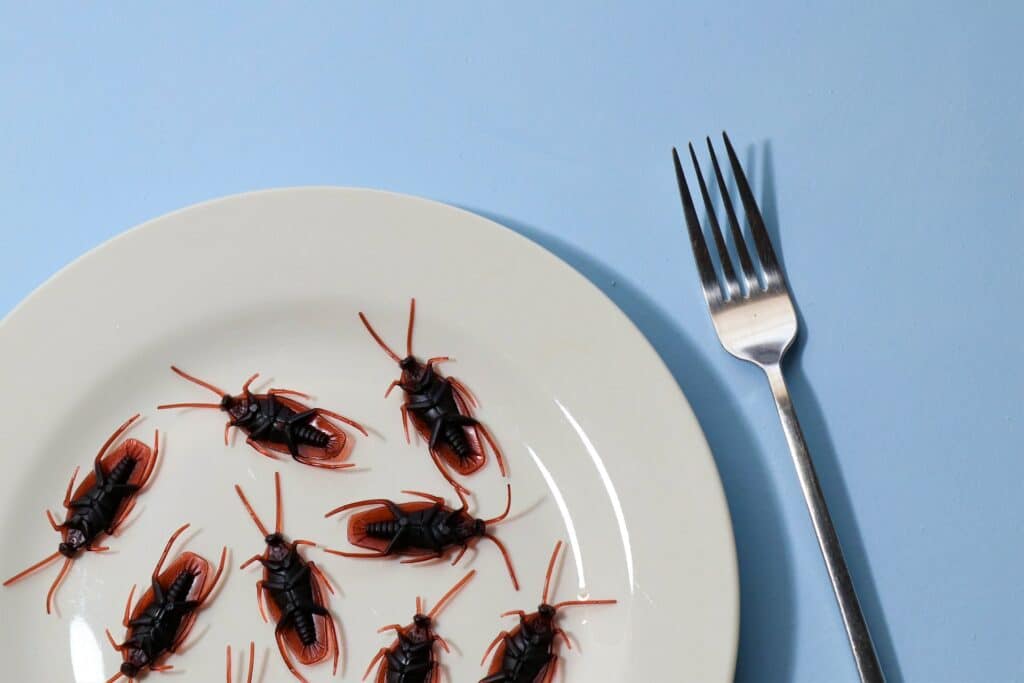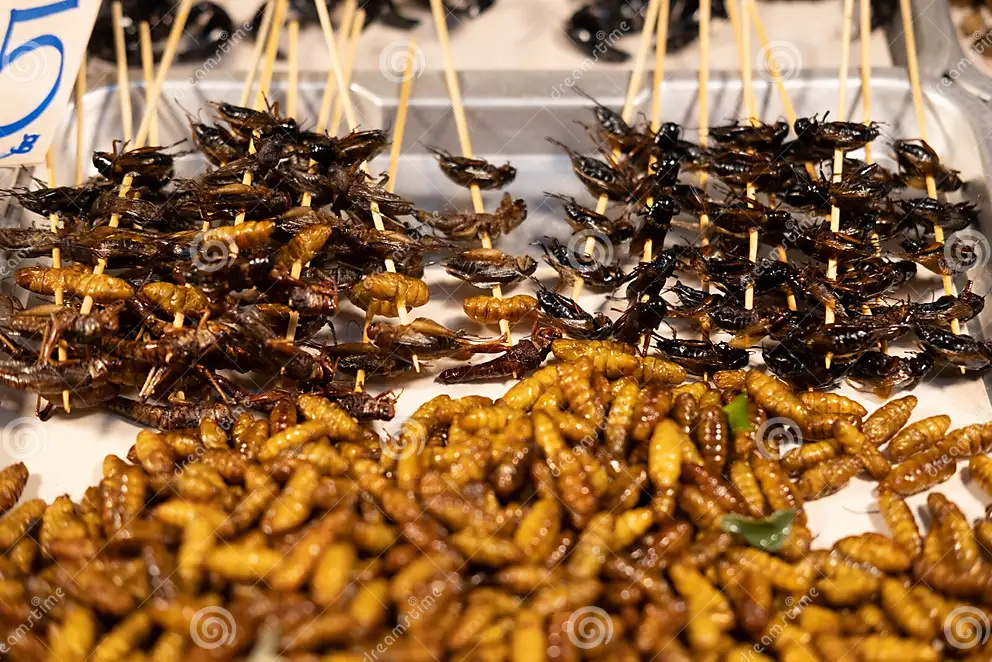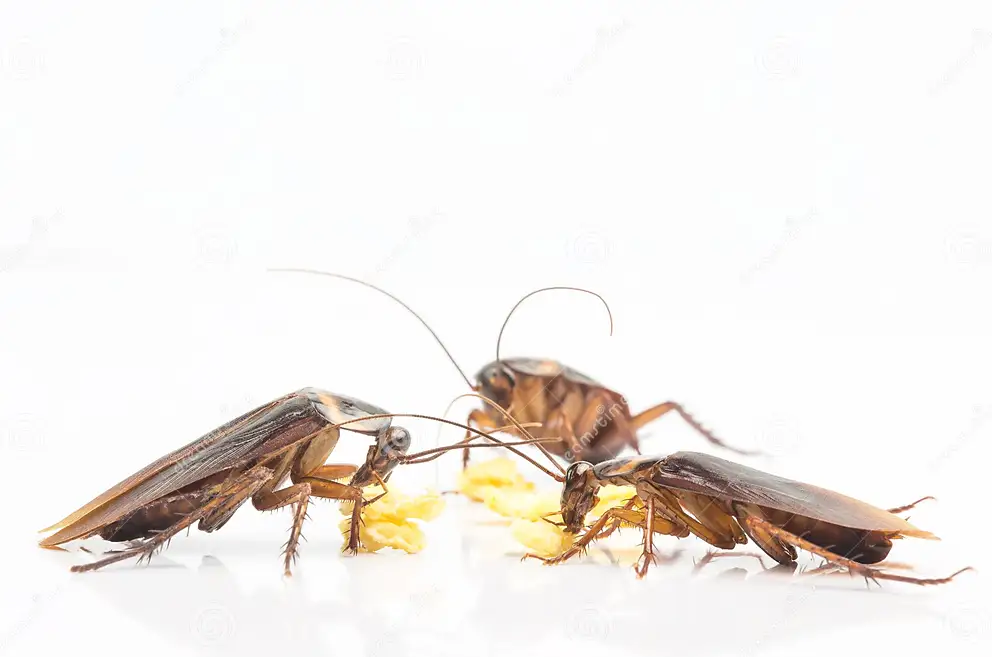Eww…Yuck. I bet this is the first response from most of you. Let alone ask a question, Is it safe to eat a cockroach?
The culinary landscape constantly evolves, with chefs and food enthusiasts seeking unique and unconventional ingredients to create unforgettable dining experiences. In this pursuit, consuming cockroaches as food may seem strange and even sickening to many. However, it is precisely this unconventional nature that makes it an intriguing subject to explore.
In this article, we invite readers to open their minds and challenge preconceived notions about acceptable food sources. Through a comprehensive examination of the culinary taste of cockroaches, we hope to catch curiosity. So let’s spark conversations about benefits of cockroaches and explore some possibilities beyond traditional ingredients.
Is It Safe To Eat a Cockroach?
Yes! Generally it is safe to eat a cockroach! Cockroaches have unconventional, possessing notable nutritional value and potential culinary benefits. Understanding their nutritional composition and exploring their culinary applications can shed light on their unique qualities as a food source.
Also, while it is technically possible to eat a cockroach, it is generally not recommended due to safety and health concerns. Cockroaches can carry bacteria and parasites that may be harmful if you consume them.Furthermore, regulations and cultural norms surrounding the consumption of cockroaches as food vary, with many regions discouraging their use. It is important to prioritize food safety and adhere to local regulations when considering unconventional food sources.
Nutritional Value Of Cockroaches
- Cockroaches contain protein, fats, carbohydrates, vitamins, and minerals.
- High protein content makes them a rich protein source, potentially comparable to conventional options.
- They provide essential amino acids necessary for various bodily functions.
Culinary Benefits Of Cockroaches
- Cockroaches offer distinct flavor profiles, described as nutty, earthy, or reminiscent of shrimp or chicken.
- Their unique taste adds depth and complexity to culinary creations, allowing creative experimentation.
- Adding cockroaches into dishes can provide a novel and adventurous dining experience.
Sustainability
- Cockroaches have a low environmental footprint. They require less water, land, and feed than traditional livestock.
- Exploring insects like cockroaches as a food source contributes to sustainable food production practices.
- Embracing these unconventional ingredients supports efforts to reduce strain on resources and promote eco-friendly choices.
If You Eat a Cockroach Will You Die?
No, consuming a cockroach will not cause immediate death. However, noting potential health risks associated with eating cockroaches is important. These risks primarily stem from the possible presence of harmful bacteria, parasites, or toxins that cockroaches can carry.
Eating a contaminated or improperly cooked cockroach can increase the likelihood of ingesting pathogens such as Salmonella or E. coli, which can cause severe gastrointestinal infections. Additionally, some individuals may have allergies or sensitivities to cockroaches, which can lead to allergic reactions.
A Bold and Surprising Recipe with Cockroaches
Ingredients
- 10-12 edible cockroaches, cleaned and prepared
- 2 tablespoons olive oil
- 1 teaspoon paprika
- 1/2 teaspoon cayenne pepper
- 1/2 teaspoon garlic powder
- Salt and pepper to taste
- Zest and juice of 1 lemon
- Zest and juice of 1 lime
- 2 tablespoons honey
- Fresh cilantro leaves for garnish

Instructions
- First, Preheat your oven to 375°F (190°C) and line a baking sheet with it.
- Add olive oil, paprika, cayenne pepper, garlic powder, salt, and pepper in a small bowl.
- Place the cleaned and prepared cockroaches in a separate bowl and drizzle the spice blend over them. Toss gently to coat the cockroaches evenly.
- Thread the cockroaches onto skewers, ensuring they are securely attached.
- Arrange the skewers on the prepared baking sheet and place them in the oven.
- Roast the cockroaches for 10-12 minutes or until they are crispy and golden brown.
- While the cockroaches are roasting, prepare the citrus glaze. Combine the lemon zest, lime zest, lemon juice, and honey in a small saucepan. Heat the mixture over low heat, stirring occasionally, until it thickens slightly.
- Once the cockroaches are cocked, remove them from the oven and brush them generously with the citrus glaze.
- Serve the spicy roasted cockroach skewers on a platter garnished with fresh cilantro leaves for added freshness and visual appeal.
- Try these unique and surprising skewers to encourage your guests to embrace their adventurous side. Provide additional dipping sauces or condiments for those who prefer more flavor options.
It is crucial to source edible cockroaches from reputable sources and ensure they have been adequately cleaned and prepared for consumption. Before attempting this recipe, it is vital to consider the cultural acceptance and legal regulations regarding consuming cockroaches in your region.
What to do If I Accidentally Ate A Cockroach?
Relax! If you have accidentally consumed a cockroach or drank water with a cockroach in it, it is important to remain calm and take the following steps:
- Spit out any remaining food or liquid
- Rinse your mouth
- Monitor for symptoms
- Seek medical advice if needed
While accidentally consuming a cockroach is unpleasant, the human body can handle such situations. However, if you have any concerns or experience severe symptoms, it is best to consult a healthcare professional for appropriate guidance and reassurance.
What Are Cockroach Food Poisoning Symptoms?
Cockroaches can carry bacteria such as Salmonella and E. coli, which can cause food poisoning if ingested. If you experience food poisoning from consuming a cockroach or food contaminated by a cockroach, the symptoms may include:
- Nausea: A feeling of discomfort or unease in the stomach, often accompanied by an urge to vomit.
- Vomiting: Forceful expulsion of stomach contents through the mouth
- Diarrhea: Frequent, loose, and watery bowel movements.
- Abdominal pain: Cramping or discomfort in the abdominal region.
- Fever: Body temperature often lead to chills or sweating.
- Fatigue: Feeling tired or weak.
- Headache: Pain in the head.
- Muscle aches: Discomfort or pain in the muscles.
- Dehydration: Decreased fluid levels in the body due to vomiting and diarrhea, leading to symptoms such as dry mouth, increased thirst, and decreased urination.
In conclusion, it is safe to eat a cockroach, However, it is generally not recommended or considered a common practice in most cultures. As cockroaches can carry bacteria, parasites, and other pathogens that pose health risks if consumed. Additionally, allergies and sensitivities to cockroaches are possible, and cultural norms and legal regulations surrounding their consumption vary.




